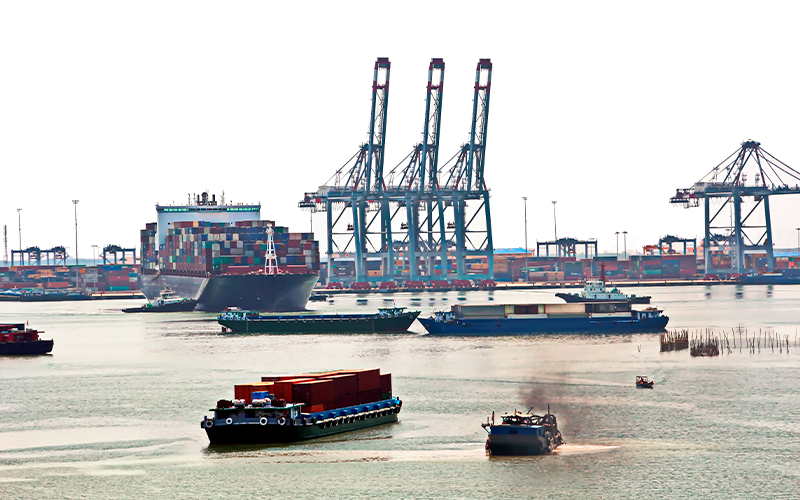Wednesday December 4, 2024
- ALL NEWS
- SMALL & MEDIUM ENTERPRISES (SME)
- INTERNATIONAL TRADE
-
REGIONS
-
NON-REGIONAL
Search

India-Vietnam trade has grown almost 80 per cent over the last five years. By now, Vietnam is India’s fourth-largest trading partner in ASEAN and India is among Vietnam’s top 10 trading partners.
Strong economic and diplomatic ties between India and Vietnam are not surprising. Both countries have a common strategic interest: keeping China’s growing economic and political influence in the region in check.
Last year, India and Vietnam held their first joint naval exercise in the South China Sea. The goal was to send a clear signal to neighboring China, which has aggressively been expanding by militarizing the territory.
Bilateral trade and tourism likely to increase
Vietnam’s main exports to China include textiles, coffee, tea, electronics, spices, building materials, cashew nuts, handicrafts, pharmaceutical products, and rubber. India exports agricultural products, cotton, pharmaceutical products, meats, and seafood.
As both countries have mutual visa-on-arrival programs in place, it’s likely that the tourism industry in Vietnam will see an increasing influx of Indian tourists and vice versa.

Pharmaceutical exports suffer from inadequate documentation
Another area of cooperation is the pharmaceutical trade. “Although the domestic [Vietnamese] pharmaceutical industry has made strong progress, it only meets 52.5 per cent of the domestic pharmaceutical demand,” says Võ Tân Thành, deputy chairman of the Vietnam Chamber of Commerce and Industry (VCCI).
On the other hand, the Indian pharmaceutical industry has emerged as a world-class, cost-effective generic drug manufacturing hub. Currently, Vietnam accounts for about 20% of India’s pharmaceutical products exports.
However, Indian drug exporters face challenges as receiving countries have recently increased non-tariff barriers. The reasons are multiple instances of data falsification, inadequate documentation and data traceability, and lax adherence to standard operating procedures.
Stay up-to-date with Exports News
Exports News strives to provide the latest news to members of the international trade world. Subscribe to our newsletter today to stay in the loop.
No Comments
Add comment



We’re happy you are satisfied with Exports News. Please let us know if you need enything!
support@exportsnews.comWe’re sorry your experience was not satisfactory. Please let us know how we can improve your experience:
Please contact us with any questions or concerns: support@exportsnews.com


Your feedback has been received! If you have any other questions or concerns, please contact us at:


There aren't any comments yet. Be the first to comment!